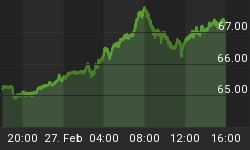If crisis-hit Venezuela was hoping to pay off its US$3.15-billion debt to Russia with its new cryptocurrency, those hopes have been shattered as the Russian Finance Ministry announces that it won’t be accepting digital coin.
Venezuela will not be paying any part of its debt to Russia with its cryptocurrency, the head of the Russian Finance Ministry’s state debt department, Konstantin Vyshkovsky, has said.
In November last year, Russia threw a life-line to Venezuela after the two countries signed a deal to restructure US$3.15 billion worth of Venezuelan debt owed to Moscow. Under the terms of the deal, Venezuela will be repaying the debt over the next ten years, of which the first six years include “minimal payments”.
The following month, Venezuelan President Nicolas Maduro announced that his country would be issuing an oil-backed cryptocurrency, which it did, in February this year.
Maduro’s propaganda machine is touting the digital coin as a ‘ground-breaking’ first-ever national crypto currency, the El Petro--backed by 5 billion barrels of oil reserves in Venezuela’s Orinoco Belt.
But most observers see this crypto issuance as a desperate attempt to skirt U.S. financial sanctions.
Earlier this month, U.S. President Donald Trump banned U.S. purchases, transactions, and dealings of any digital coin or token issued for or by the government of Venezuela.
Last week, Time magazine reported that Russia secretly helped Venezuela in creating the Petro, with the purpose of undermining the power of U.S. sanctions, the magazine reported, citing sources familiar with the effort. Related: Luxury Automaker Partners With Google In Driverless Car Race
Russia slammed the Time report as “fake news”, with Deputy Director of the Information and Press Department of the Russian Foreign Ministry, Artyom Kozhin, saying that Russia and Venezuela had never worked together on the development of the Venezuelan cryptocurrency.
Russia and China are the last holdouts that still finance Venezuela, which is digging deeper into the downward spiral of economic crisis, hyperinflation, and crumbling oil production. However, China is reportedly thinking of cutting off Venezuela from new loans. This would leave Russia as the only financial supporter of the Maduro regime, and if all it’s got is a crypto coin that no one really believes in to pay off debt, loans are likely to be plentiful.
By Tsvetana Paraskova for Oilprice.com
More Top Reads From Safehaven.com:
















